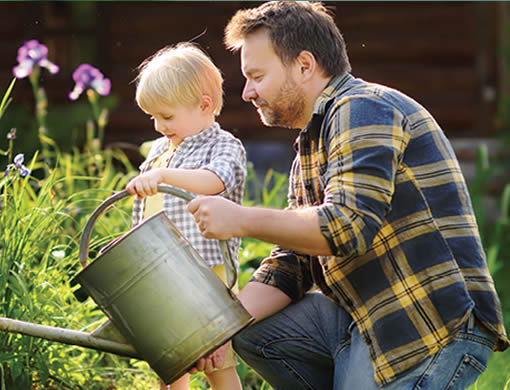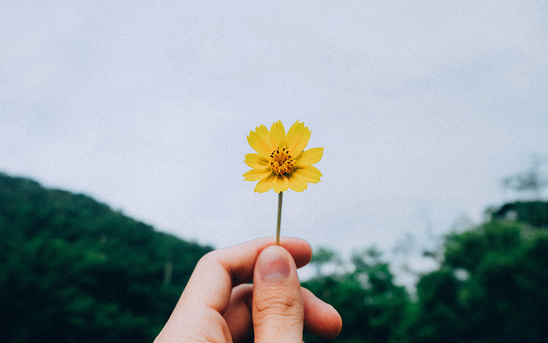Here at Fortified we have been working hard to deliver the best advice possible. We are honoured to announce that we have partnered with Vanguard (second largest investment company in the world) to help refine our investment philosophy....this means better investments for you. Further to this, we would like to share that our business is growing, we are pleased to inform you that we have employed more staff to assist with your strategies.

While the race that stops a nation is always a highlight of early November, on the economic front the Labor government’s first Budget, handed down in late October, has been a talking point.
Treasurer Jim Chalmers’ first Budget was delivered against a backdrop of continuing turmoil on the global economic front. The UK reversed its promised tax cuts that spelled the end of Liz Truss’ brief tenure as Prime Minister. She was replaced by the more economically credible Rishi Sunak. In the US, media reports suggested the US Federal Reserve will scale back its aggressive interest rate hikes in December. Both events were welcomed by financial markets, but the same challenges remain. Escalating war in Ukraine, energy supply shortages, rising inflation and interest rate hikes to fight it, still point to a likely recession in the US and elsewhere. Oil prices continue to rise as OPEC restricts supply, with Brent Crude up about 13% this month, but recession fears are moderating the price pressures.
In Australia, economic signals are mixed. Reserve Bank assistant governor, Luci Ellis said in a speech that Australia’s ‘’neutral” cash rate should be at least 2.5%. The rate is already at 2.6% after a 25-basis point rise last month, but further increases are expected. Unemployment rose slightly to 3.5% in September, perhaps indicating labour shortages are easing. The ANZ-Roy Morgan consumer confidence index slipped below its 2022 average of 90.3 on recession fears and the falling Aussie dollar. The dollar fell another 2c to around US63.2c in October. Businesses are more optimistic, with the NAB business conditions index up 3 points to a 15-month high of 25 points in September.
Catching the Kindness Bug

Australians have seen more than their share of tough times over the past few years and there are many stories of how individuals and communities responded to natural disasters and the pandemic with empathy and valuable assistance.
Being kind and helping others does not have to be something that we only do in times of crisis however, every day can provide opportunities to look out for others and be more caring and compassionate in the way we conduct ourselves.
A kind nation
A recent study shows that we truly believe ourselves to be a kind nation and that we are living this out in our daily lives, with the average Australian performing 16 acts of kindness every week.i
The amazing thing about being kind is that it not only helps the recipient of your care and compassion - it also benefits you, the giver, in so many ways.
The benefits of a kind act
If you feel good after you’ve done something nice for someone else, you are not just basking in the psychological glow of a job well done and the thanks they gave you. Biologically, kindness releases chemicals like the “love hormone,” oxytocin, which helps us form social bonds based on trust and give us a sense of belonging and community, and serotonin which promotes a feeling of calmness and combats depression.
There are a host of other physical benefits that can come from doing something nice for others. Doing a good deed for others has been proven to lower blood pressure, improve the health of your heart, reduce anxiety, and stress, and even boost immunity.ii
Kindness – the gift that keeps on giving
Kindness tends to be contagious (but in a good way!). If you are the recipient of kindness, it can spur you on to think of others and in turn do a good deed for someone else.
Research also shows that the happiness people get from giving to others creates a ‘positive feedback loop.’ The more you give, the more positive you feel, which leads to feeling more inclined to help others.iii
Random, spontaneous acts of kindness
Being kind is all about the small things. You don’t need to be daunted by the effort or possible expense of a grand gesture. If you keep it small, it’s easy to include random acts of kindness as part of your daily routine. These could be as simple as offering a compliment to a co-worker or contacting a friend who is going through a tough time and just asking how they are doing and letting them know they are in your thoughts.
If it’s not something that comes naturally to you, it can help to just consciously aim to do one nice thing for someone every day. If kindness is on your radar, you can work some spontaneous gestures into your day. Pay forward that coffee in the café you always go to, open the door for the person struggling with their groceries or hold the lift for the guy in a hurry.
Once you’ve mastered spontaneity, you can take it one step further and plan how you’d like to help others on an ongoing basis. Here are a few ideas to get you thinking:
- Join a website to give things away you don’t use
- Share your skills by offering to mentor someone in your industry
- Help an elderly neighbour by offering to walk their dog or pick up some shopping when they need it
Sponsor a local charity
Being kind to yourself Finally, fostering kindness is not only about being kind to others. As kids we may have been told to ‘treat others as you would treat yourself’ but we are often not as kind to ourselves. Many people maintain a negative internal dialogue that we would not tolerate from someone else, and we can be extremely hard on ourselves if we fall short of our own expectations. A little positive self-talk and self-care can go a long way when it comes to looking after yourself and it’s not selfish to do so.
Each act of kindness can change the way we see ourselves and others, as well as how others see us. so, when you are faced with the choice of how to react to a particular situation - take the opportunity to be kind.
i https://mccrindle.com.au/article/blog/what-are-the-most-common-acts-of-kindness-in-australia/
ii https://www.quietrev.com/6-science-backed-ways-being-kind-is-good-for-your-health/
iii https://www.healthdirect.gov.au/acts-of-kindness-and-compassion